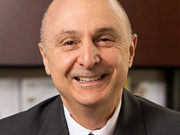Ten years ago, Flight Safety Foundation joined other notable organizations that support aviation safety to issue an unprecedented resolution decrying an increase in aviation accident criminalization. We owe thanks to these organizations and others like them because their compelling arguments eventually led to International Civil Aviation Organization standards that have been recognized around the world for advancing the safety of our industry.
Thankfully, the industry has matured and the public has come to expect our extraordinary levels of safety. That success has allowed us to focus on close calls in aviation incidents and any associated failures of our highly dependable processes. In these cases, we hope the same principles of fairness to the individuals involved are being applied.
In October, China Eastern Airlines Flight MU5643, an Airbus A320, was involved in a serious runway incursion incident during takeoff from Shanghai-Hongqiao Airport in China. The incident animation made public recently provides a hair-raising illustration of how close this event was to a tragic accident. We know the whole world is learning from the mistakes made in these types of events, and many organizations are strengthening the barriers to guard against things like this occurring again.
Yet in this event, there are reports of reprimands of the individual controllers involved, including some who lost their jobs for the rest of their lives. If individuals knowingly acted with disregard for the safety controls and did not meet the predefined standards and expectations of their employer, one would expect consequences. The same would be expected for anyone who has demonstrated the same disregard for safety, whether they were involved in a serious incident or not. Pursuing safety improvements and addressing deficiencies does not mean avoiding punishment at all costs. For example, most people would agree that we need strong drug and alcohol rules.
But violating clear rules on fitness for duty is a lot different than making inadvertent mistakes. Maybe more concerning is the news of a move by India’s DGAC to change the rules by which pilots can be fined for mistakes committed during operations. While this isn’t treating someone like a criminal, it could affect a pilot’s professional record and reduce the likelihood that a pilot might self-report a safety issue to his own organization. Just think about how often someone might want to describe their own mistakes or errors if the release of this information could lead to financial penalties. Most safety management systems depend on the free flow of information that comes from front line employees like pilots.
In so many ways, the advent of safety management systems is encouraging us to treat each other with respect. In improving safety, the process of reporting systems recognizes that individuals are trying to achieve great performance through the things they do every day. When something goes wrong, they get a chance to share the story and get others’ help on how the problem they encountered could be avoided in the future. Often these are not disinterested people only responding to a carrot-or-stick approach from their management or regulator. They are the people we need to depend on to carry out their jobs and make good dynamic risk decisions. It would be best to treat them as exceptional people who really want a chance to work with others to improve the process.
We have moved further from the criminalization of accidents in the past 10 years, thanks to the courageous work of others. Let’s carry that tradition forward and avoid a rush to judgement and non-criminal punishment. Let’s expect the best of everyone and set high standards for behavior. Let’s also remember that a motivated crew can help our joint interests in safety performance.
Mark Millam is vice president, technical, at Flight Safety Foundation.

